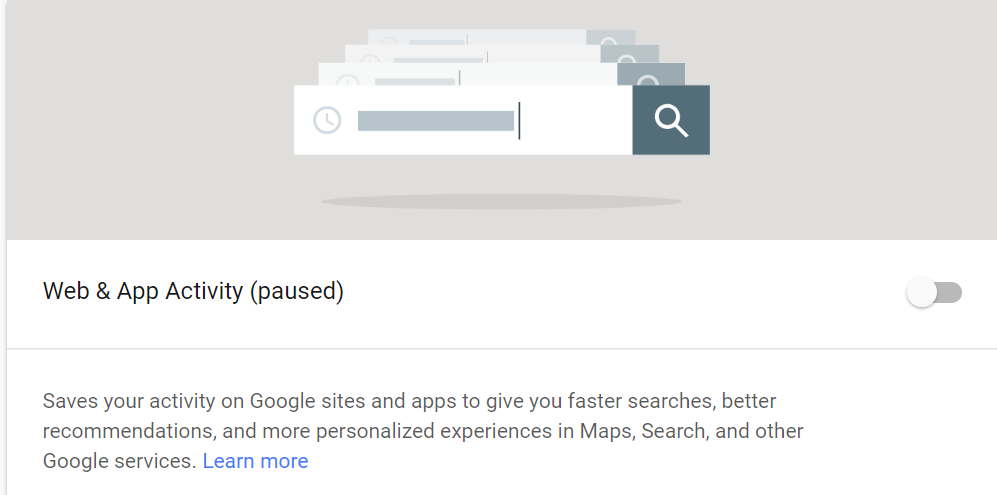A couple of weeks ago we learned that if you have an Android phone, Google tracks you even when you turn location history off.
Although Google says that when you turn location history off “the places you go are no longer stored” an Associated Press investigation found that isn’t true and “turning off your Location History only stops Google from creating a timeline of your location that you can view. Some apps will still track you and store time-stamped location data from your devices.”
Now we know that Google has a deal with Mastercard – and possibly with other payment networks – to track retail purchases and compare those to online ad clicks in order to help determine the effectiveness of online advertising beyond immediate online purchases.

Google then shares date with a test group of retailers who “see aggregate sales figures and estimates of how many they can attribute to Google ads — but they don’t see a shoppers’ personal information, how much they spend or what exactly they buy.” And here I thought the MileagePlus X app was revolutionary as a way to earn miles for in-store purchases.
When Google first launched their Adwords platform it was revolutionary. They wanted to show consumers only ads that those people wanted to see, as judged by whether they clicked through. That missed an important element of advertising, branding and messaging, where the key isn’t to get an immediate customer behavior (click to purchase) but to shift consumer perception or opinion.
Online advertising is fundamentally measurable and so ad buyers focus on what can be measured. There’s been a shift from paying per impression to paying more per click, to ultimately paying even more per transaction — even as online ads rates fall.
However this too has its flaws.
- Per-transaction payments treat the buying decision as immediate and one-off. They do not credit all the displays of an ad taht reinforce a customer’s decision to buy a product or keep the product top of mine. Only the last click generally gets credited.
- These ads do shift consumer behavior, but ultimate purchases may not be trackable because they happen later or consumers search online and buy offline.
Google wants to show the value of their ad placements is greater than what retailers see from clickthroughs, and this data helps them do it. And if they can offer a more measurable experience than competitor platforms, that keeps them a preferred focal point for advertiser spend.
Tying in-store purchases to ads they serve was “[p]art of the original goal” of Google Wallet although Google says they never actually tied Google Wallet to ad tracking.
What they have done, before this Mastercard deal, was:
- Let advertisers know when “someone who clicked an ad visits a physical store, using the Location History feature in Google Maps.”
- In 2015 they started allowing retailers to upload customer email addresses to better match behavior, and linked this with data from credit reporting agency and data broker Experian.
The way Google getting there, of course, is by tracking you. You aren’t Google’s customer, you are their product. The challenge is that they appear to be moving faster in their efforts to track and monetize than they are in sharing with users what they’re doing.
If you want Google not to track your location by the way, there’s actually a process.
- Sign in to your Google account
- Access your account settings
- Choose personal info & privacy
- Then Manage Your Activity
- Click Activity Controls
- Toggle off Web & App Activity

Nowhere along this process does Google tell you that ‘Web & App Activity’ is in any way related to location tracking.


The Brave New World of Google.
Google has been doing this for quite awhile. They have access to to approx 70-80% of in store card swipe data.
https://www.technologyreview.com/s/607938/google-now-tracks-your-credit-card-purchases-and-connects-them-to-its-online-profile-of-you/
Thanks. Some useful material with a guide to remedy.
@Gary – interesting post – thanks. I have a few google accounts and all were set to paused, which was apparently prescient.
And people worry about government surveillance.
Surely there will be apps that require toggling Web & App Activity on. Everyone will comply.
@john – candidly my reason for worrying about google tracking is precisely that the data is then available to the government.
@Gary
And my reason for worrying is that the USA was founded on the basis of numerous personal liberties and freedoms. While the text in the constitution specifically refers to the government, large corporations usurping those kinds of protections is merely a matter of semantics.
As you mention, google tracking me and handing over the information to the government without a warrant is functionally no different than the government just obtaining it with its own surveillance techniques.
Scary Fox News Tucker report about Google 08/31/18. Unbelievable ways how we are tracked anonymously by Google pretty much even with our phones off! The whole hour was dedicated to how technology is keeping track of us. Europe is doing a much better job protecting their people.
It is not just the government. I am guessing before long, these Google and Facebook records will be subpoena by courts. Can you imagine the amount of damage this information could in a divorce case. The problem is this, once the data exists, I do not believe the unscrupulous, ideologues, law and order types, anti-free speech types….. will decide to use this to go after their enemies. Whether their enemies deserve it is hardly the point. We deserve some privacy.
Sodomy was illegal and prosecuted in the 1950s everywhere in the USA. Even if it was not prosecuted, public disclosure could ruin one’s life. Without privacy, many peoples lives would have been destroyed. Can you imagine how much damage a prosecutor could do if they decided to prosecuted sodomy with the combined information from Google, Facebook, and Government Metadata, using the FISA Courts. Ok, suppose instead of actually prosecuting, they released the information to the Press and they ran with it. Can you imagine how much power the government would have with this detail. Everyone should be afraid of the ability to do 1984 two way TV on steroids.
My credit card was used without permission. And I would like a refund of 41.99